Who Can Diagnose Autism in Children?
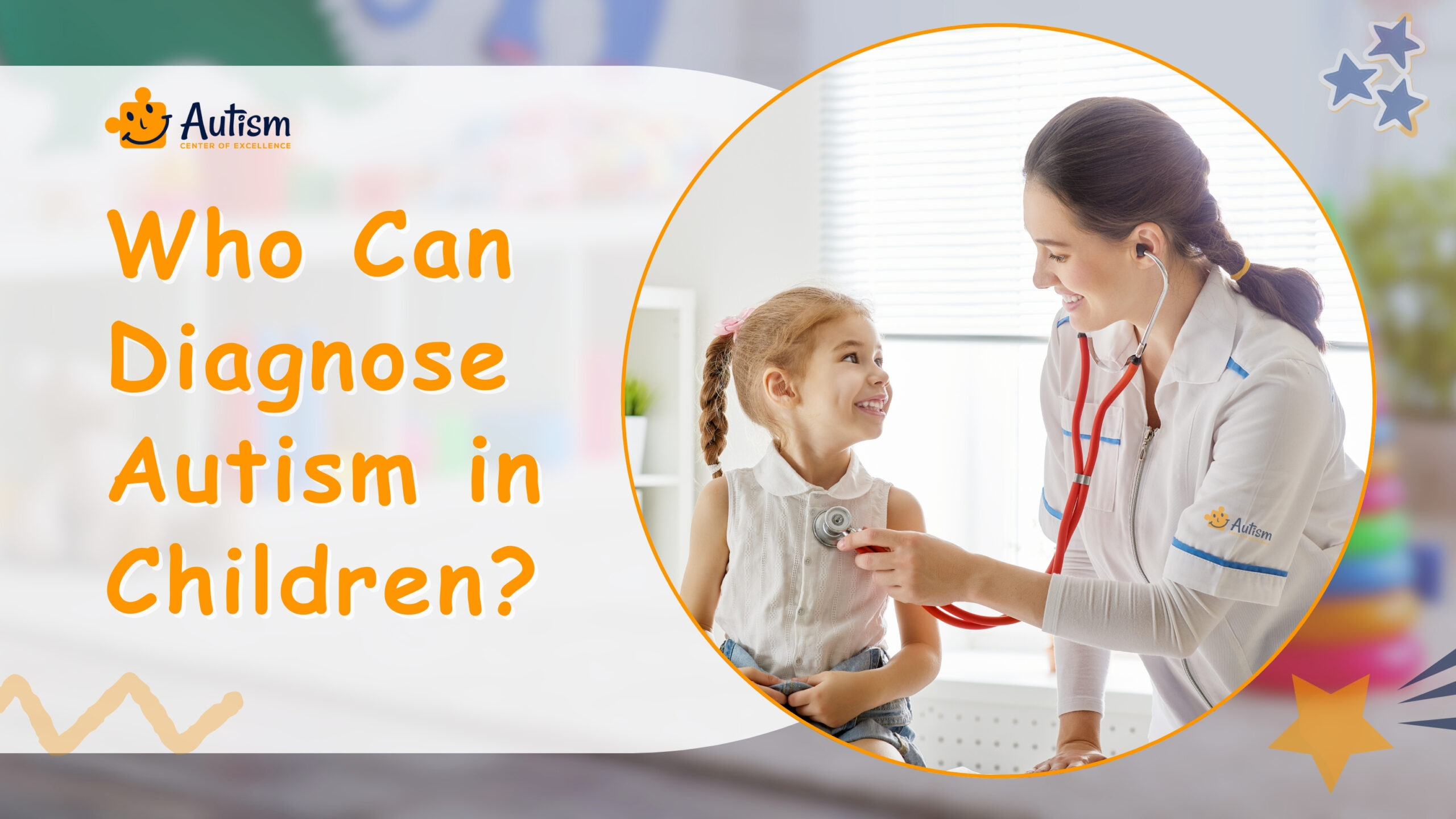
Parenting is a journey filled with moments of joy, challenges, and countless questions. For some parents, such a question may be, “Could my child have autism? “Autism Spectrum Disorder, or ASD, is a developmental disorder that affects the way a child thinks, communicates, relates to people, and interprets their environment. It is indeed quite daunting; however, early diagnosis indeed acts as a game-changer. It opens the door to therapies and support systems that help children reach their full potential.
This article aims to demystify the Autism Diagnosis Process, shed light on the signs of autism, and, most importantly, explain who is qualified to diagnose this condition. Let’s break it down.
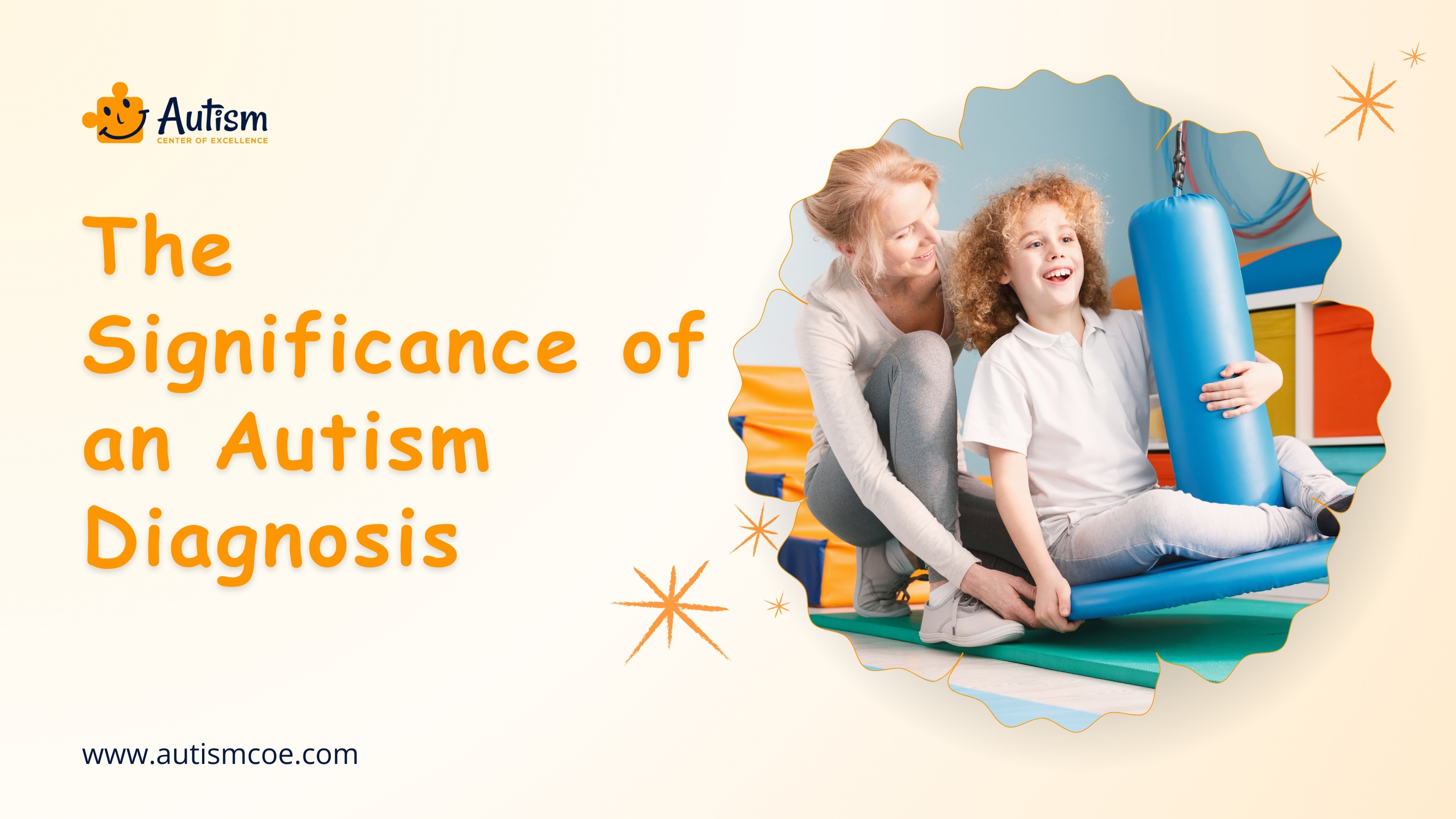
Signs of Autism and the Importance of Diagnosis
The first step in any diagnosis is noticing the signs. Autism can look different in each child, but there are common behaviors that parents and caregivers might notice. For instance, your child might need help to make eye contact, not respond to their name when called, or even comprehend and use language properly. Repetitive behaviors such as lining up their toys or hands flapping are also typical. Some children may be very sensitive to sounds, lights, or textures, while others may not even bother to notice them at all.
Understanding these signs is critical. Why? Because Early Intervention works best when it starts early! If you or a teacher notice something unusual in your child’s development, it’s time to get a professional evaluation. Early diagnosis can make all the difference in how a child will advance in their developmental challenges.
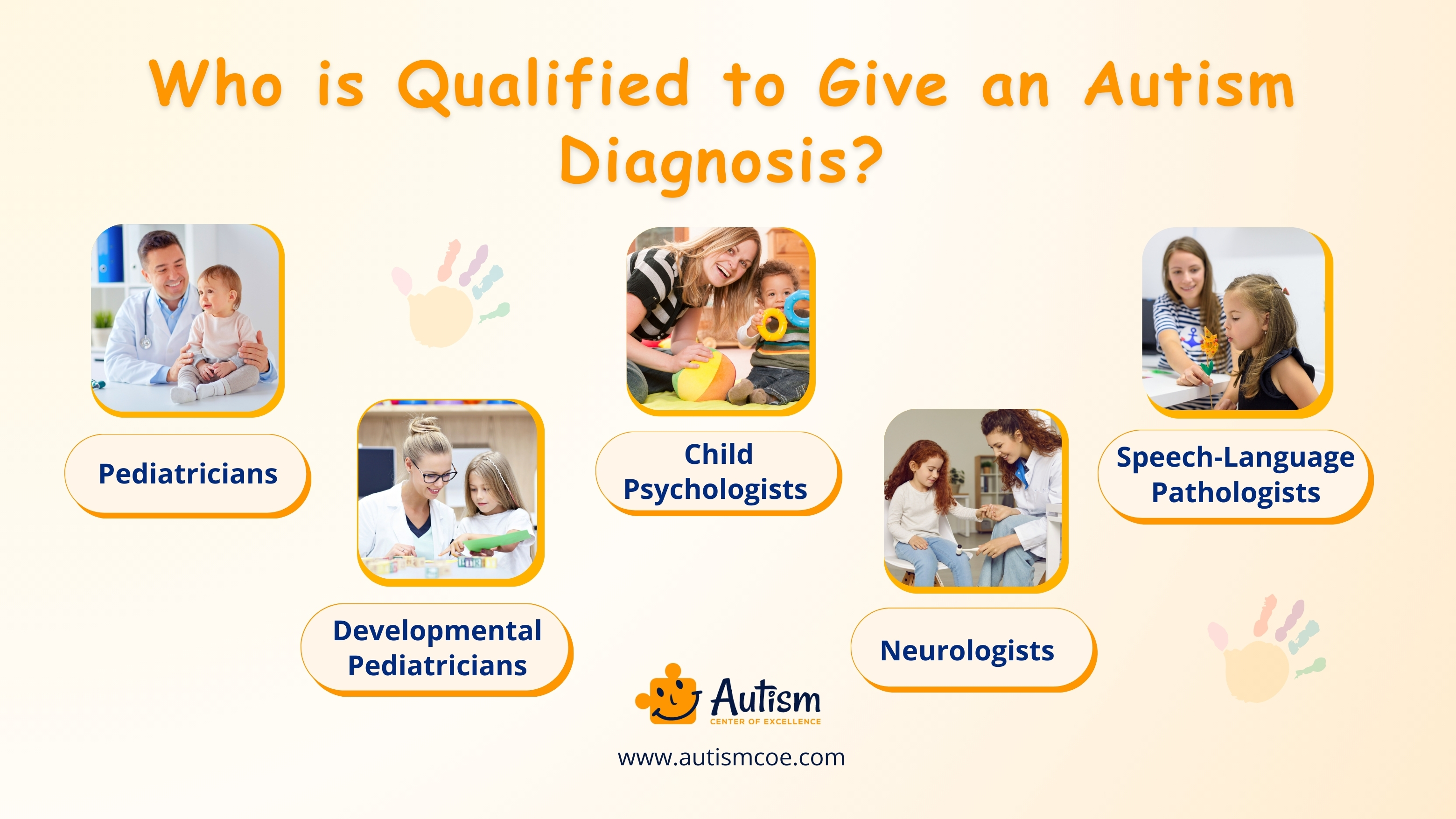
Professionals Who Diagnose Autism
So, who can diagnose autism? Every healthcare provider cannot diagnose a condition like ASD. Specialized training and experience are necessary for this job. Now, let’s take a closer look at the professionals involved in diagnosing autism:
Pediatricians
Pediatricians are usually the first port of call. They provide development screenings during routine well-child visits. In cases where a red flag might appear, your child would be referred to a specialist for more assessment.
Developmental Pediatricians
Developmental pediatricians specialize in child development. They are specialists in diagnosing developmental disorders like autism. They will closely examine your child’s behavior, Communication Skills, and social interactions.
Child Psychologists and Psychiatrists
These professionals are trained in mental health and developmental conditions. Psychologists usually conduct tests and other tools to diagnose autism. Psychiatrists may also be helpful in case there are co-occurring conditions such as anxiety or ADHD.
Neurologists
Sometimes, a neurologist is also consulted in case suspected neurological conditions are causing the symptoms in a child. They check to see whether the brain functions correctly and eliminate other causes of developmental delays.
Speech-Language Pathologists
Speech-language pathologists are part of the team; however, they diagnose language/communication disorders, which are crucial parts of ASD.
Collaboration is key. These professionals often work together to provide a comprehensive picture of your child’s needs.
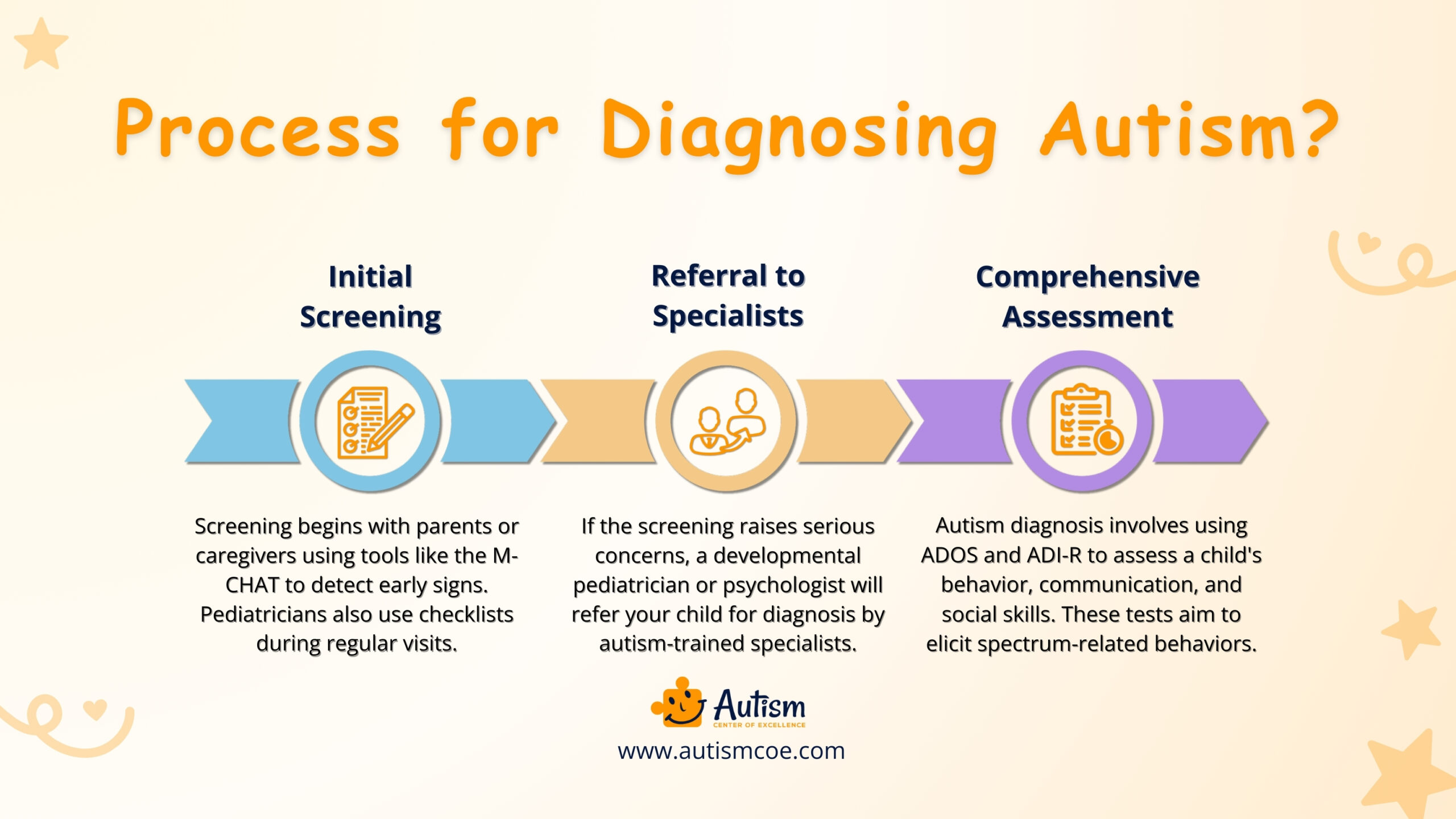
What is the Process for Diagnosing Autism?
Diagnosis of autism cannot be generalized. There are several phases in determining the accuracy of the information and seeking a clear understanding of a child’s developmental profile. Here’s a typical process:
1️⃣ Initial Screening
Screening begins with parents or caregivers, as tools like the Modified Checklist for Autism in Toddlers (M-CHAT) may be useful to detect early signs. The pediatrician also uses developmental checklists on regular visits.
2️⃣ Referral to Specialists
If the screening raises some serious concerns, a developmental pediatrician or even a psychologist will refer your child for that purpose. This procedure ensures diagnosis by specialists trained to diagnose autism.
3️⃣ Comprehensive Assessment
This is the core of the diagnosis process for any case of autism. Specialists may use the Autism Diagnostic Observation Schedule (ADOS) and the Autism Diagnostic Interview-Revised (ADI-R) to observe the child’s behavior, communication, and social skills. These tests are structured yet friendly and attempt to elicit behaviors relevant to the spectrum disorder.
The parent will also be asked about the developmental history of their child, which comes in handy in the assessment process.
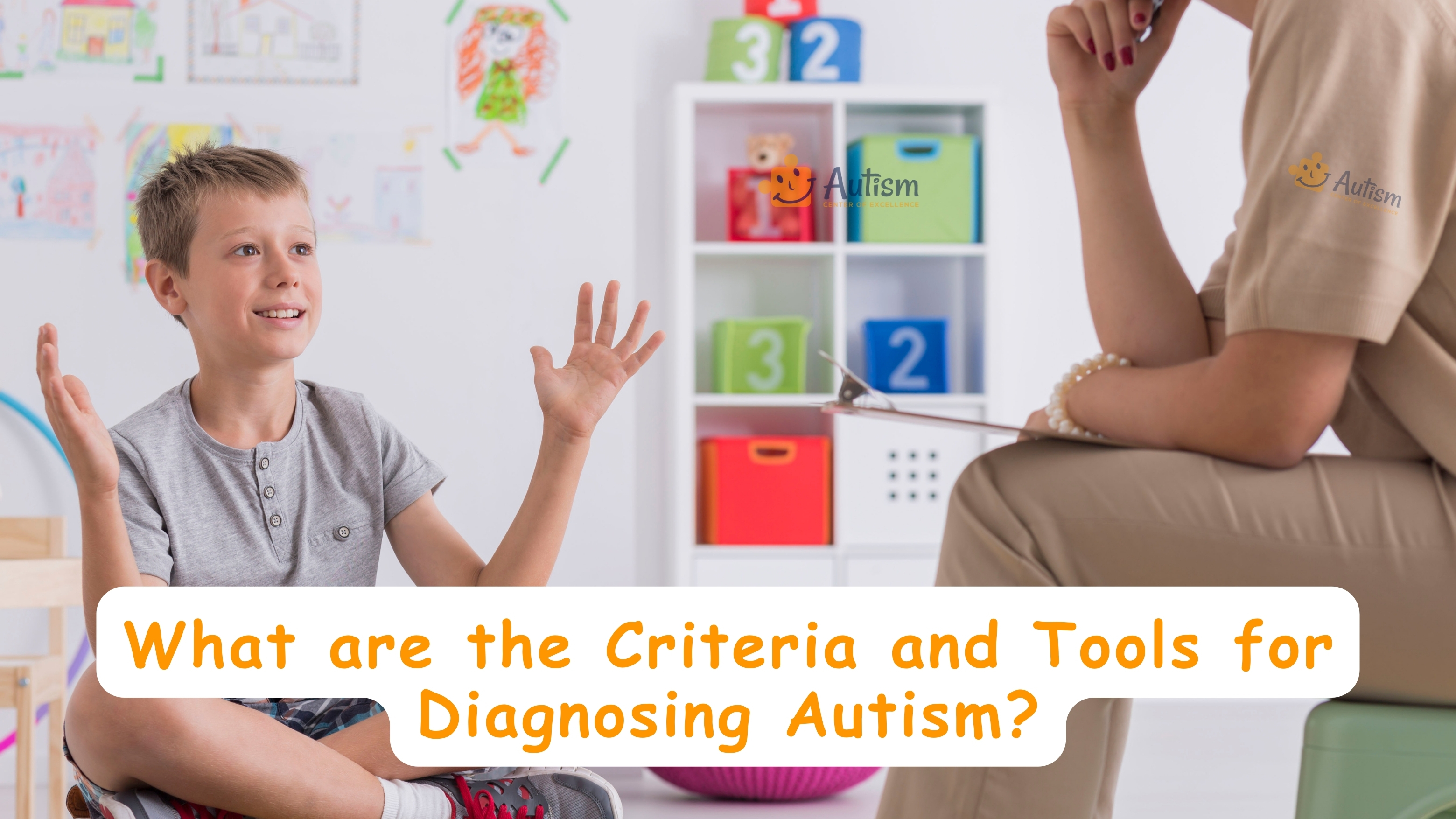
Autism Diagnostic Criteria and Tools
Autistic condition diagnosis relies on specific criteria outlined in the Diagnostic and Statistical Manual of Mental Disorders, Fifth Edition (DSM-5). The DSM-5 characterizes autism by the following two aspects:
➡️ Persistent difficulties with social communication and interaction.
➡️ Restricted, repetitive patterns of behavior or interests.
Experts utilize such a framework to determine whether a Child’s Symptoms would fit within an autism diagnosis. They may also use:
➡️ Autism Spectrum Disorder Tests: Structured assessments to evaluate ASD-specific behaviors.
➡️ Observation Checklists: Tools like the autism diagnosis checklist ensure no key details are overlooked.
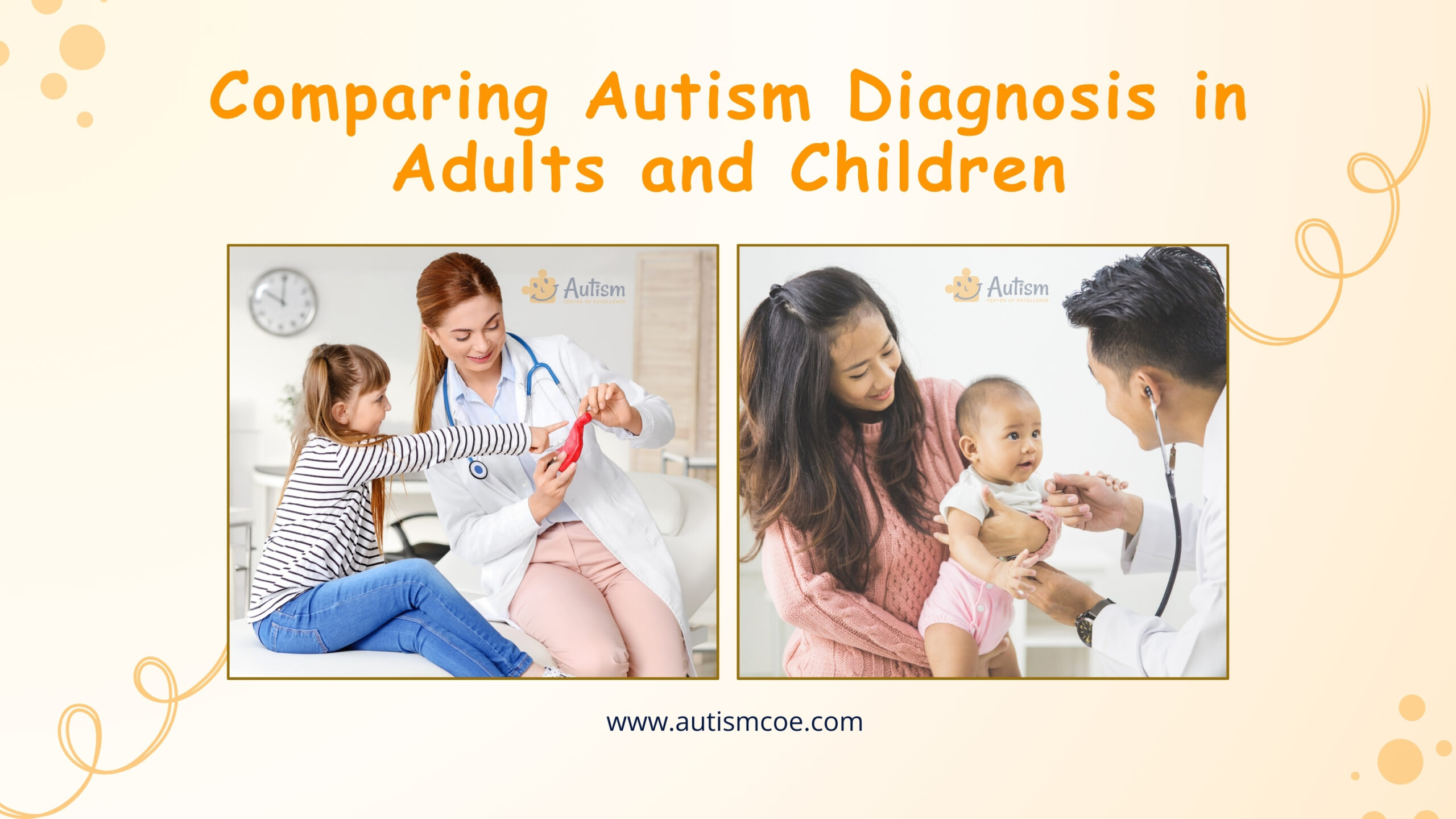
Differences in Adult and Child Autism Diagnosis
Even though this article deals with children, it is worth noting that people could be diagnosed with autism at any age. The process of diagnosis in adults differs significantly from that of children. Adults have Coping Strategies that enable them to hide the symptoms. It is much harder to notice social and behavioral problems, which usually start or are most visible in early childhood. Also, a detailed developmental history of childhood is required. In Adulthood, retrieval of this information may be problematic due to weakened memory and perhaps a lack of readily available records.
The good news? More adults are actively seeking evaluations now, which is a positive trend. This means they are now even more proactive in their quest for necessary support and resources they may have perhaps missed out on earlier in life. As Awareness of Autism increases for every age group, more appropriate interventions and strategies are emerging to make life easier and fuller for adults on the spectrum.
Enjoying Reading?
Join Our Weekly Newsletters!
Subscribe now to stay updated with our latest email updates.
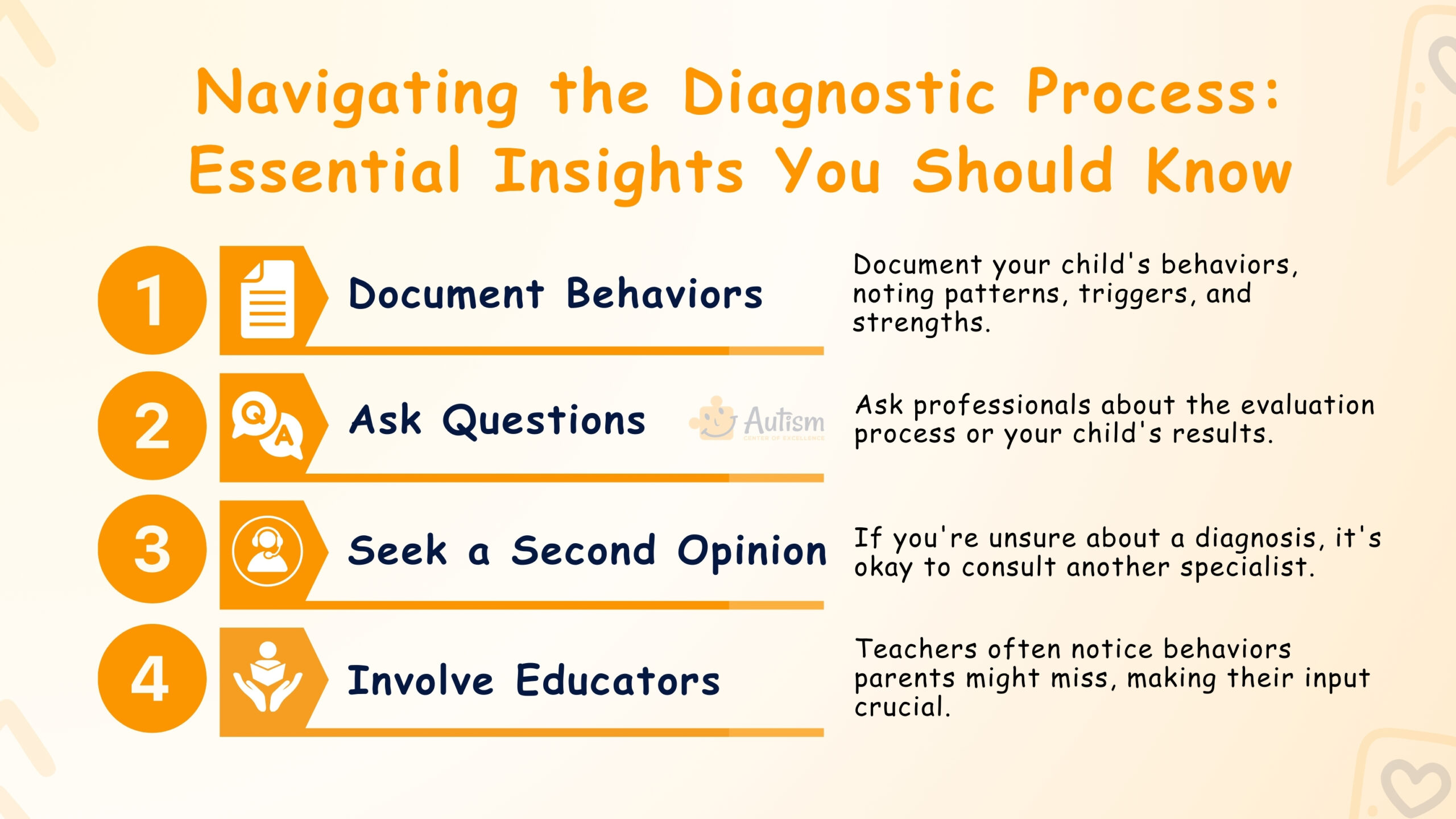
Tips for Families Navigating the Diagnosis Process
Preparing for an Autism Diagnosis can be overwhelming, but with preparation, it can go much smoother. Here are a few tips:
Document Behaviors
Document your child’s behaviors, noting patterns, triggers, and strengths. This can provide valuable insight during those evaluations.
Ask Questions
Be bold and ask professionals about the evaluation process or what was found in your child’s results.
Seek a Second Opinion
If you’re unsure about a diagnosis, it’s okay to consult another specialist.
Involve Educators
Teachers and early childhood educators often observe behaviors that parents might miss. Their input can be crucial.
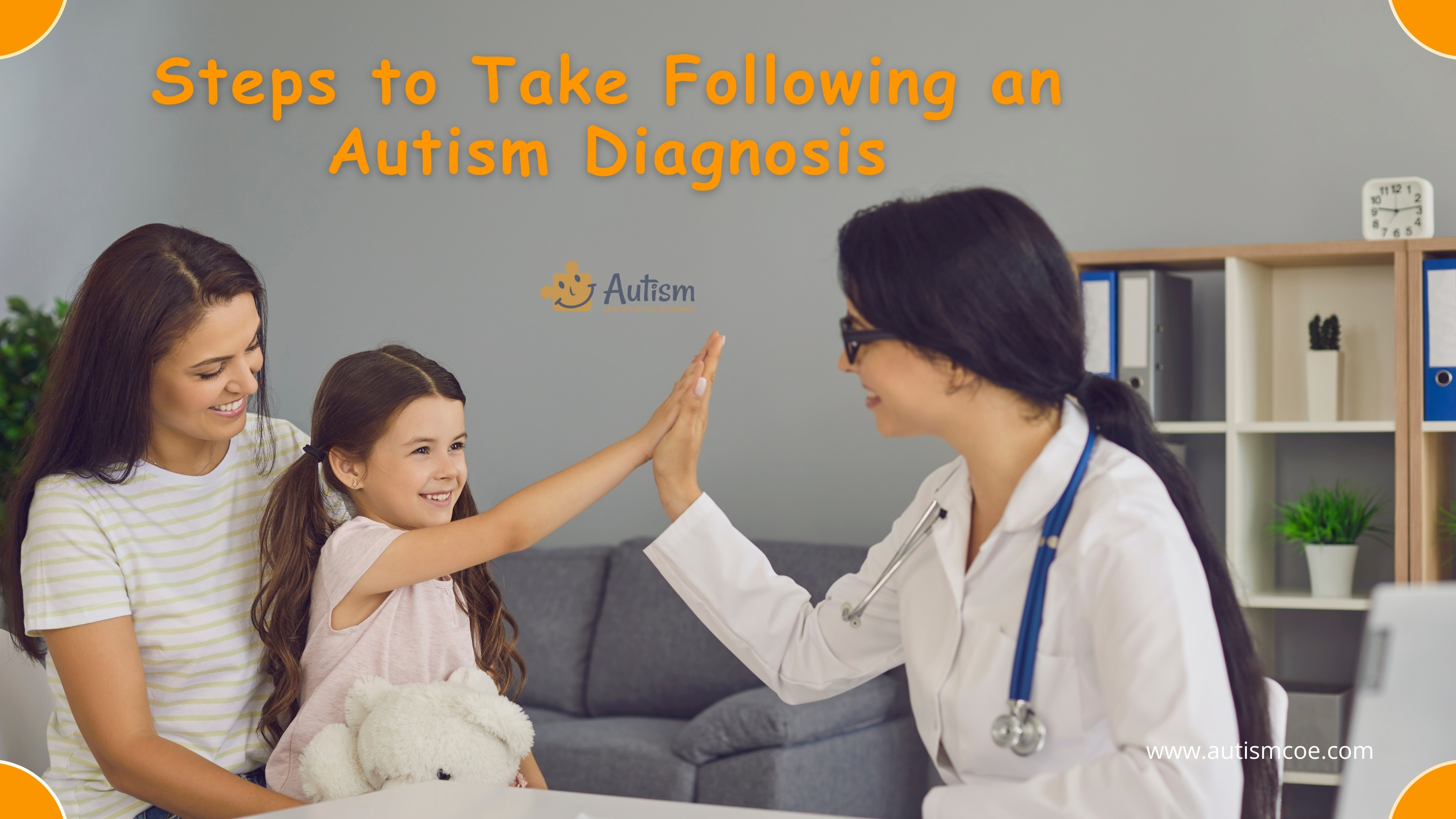
Next Steps After an Autism Diagnosis
Diagnosis of autism does not have to be the end but rather the beginning of a new journey of opportunities for growth and understanding. After your child is diagnosed, you will have access to various interventions that are necessary and suited to their treatment needs, including Speech Therapy to improve communication skills, Occupational Therapy to enhance daily living skills, and ABA Therapy to help regulate behavioral functioning. Early intervention programs are important because they help children grow by teaching them important skills, gaining self-confidence, and managing independence.
Usually, such programs have a team of professionals working with families who create an effective support system. Remember that every child has their strengths and weaknesses. Celebrate even the slightest progress in the child, and every step taken forward is significant in the journey. Continue embracing their learning experience and special moments on the way.
Frequently Asked Questions & Answer
How is Autism Diagnosed According to the DSM-5 Criteria?
Autism is diagnosed based on persistent difficulties in social communication and interaction, along with restricted, repetitive behaviors, as outlined in the DSM-5.
At What Age Can Autism Be Diagnosed in Children?
Autism can be reliably diagnosed as early as 18 months, but signs are often noticeable before this age. Early diagnosis is crucial for timely intervention.
What Should Parents Prepare Before Starting the Autism Diagnosis Process?
Parents should document their child’s behaviors, including examples of social interactions, language use, and repetitive actions. Bringing developmental milestones, medical history, and feedback from teachers can also be helpful.
What Type of Doctor is Best for Autism?
A developmental pediatrician is ideal for diagnosing autism. Child psychologists, psychiatrists, and neurologists can also help, depending on your child’s needs.
Conclusion
Early diagnosis of autism can pave the way for life-changing support and opportunities. If you’ve noticed Signs of Autism in your child or feel something “just isn’t right,” trust your instincts. Seek help from qualified professionals and start the process. Autism doesn’t define a child’s future—it’s just one part of who they are. With the right support, they can thrive in their way.
First is awareness. If this article has triggered questions or helped clarify matters, do it today. Let your child have a chance to shine.
Please Note: The content of this blog is for informational purposes only and should not be considered a substitute for professional medical advice, diagnosis, or treatment. Consult a qualified healthcare professional for personalized guidance tailored to your specific situation.

Bhavika Bhasin
Bhavika Bhasin is the Research and Marketing officer at AutismCOE. She works with children and adults with ASD. Her clinical research includes evaluating various available autism screening and diagnosis methods and their efficacy. She is currently developing a novel screening exam that is indicated to be more accurate than the existing available exams. She is also writes articles papers for various publications.

